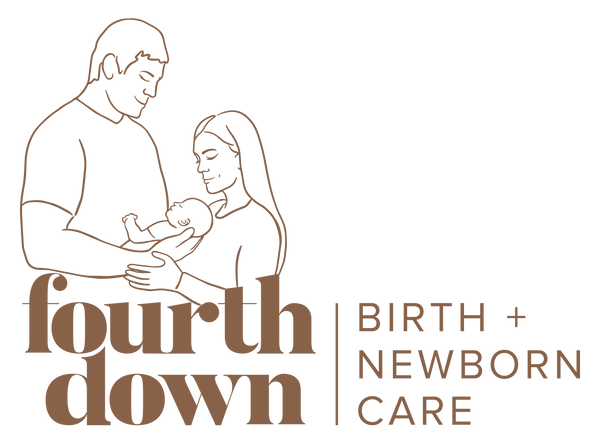
After giving birth, many new mothers experience a rollercoaster of emotions and physical changes. But how do you know if the changes you're experiencing are normal or if they indicate a hormonal imbalance? At Fourth Down, understanding postpartum hormones and their signs of imbalance is crucial to providing the best support to new mothers during this delicate time.
The postpartum period is a time of significant hormonal fluctuations as a woman's body adjusts to no longer being pregnant. These hormonal changes can have a profound impact on a mother's physical and emotional well-being. However, it can be challenging to distinguish between typical postpartum symptoms and signs that indicate a more significant hormonal imbalance.
Recognizing the signs of postpartum hormonal changes and imbalances is vital for identifying when additional support or intervention may be necessary. By understanding these changes, Fourth Down can offer their clients the guidance and resources needed to navigate this transformative phase of motherhood. Join us as we explore the common changes in postpartum hormones and the signs indicating an imbalance, ensuring that new mothers receive the care they deserve.
Hormonal Changes After Birth
While there is no exact postpartum hormone timeline, there are certain things you can expect to happen after you have a baby.
Immediately After Birth
Immediately after giving birth, you'll experience a drop in progesterone and estrogen (the hormones responsible for helping you feel calm and happy during pregnancy). A surge of oxytocin also occurs to compensate for the sudden drop of estrogen and progesterone, and your body begins to produce prolactin to encourage milk production. These rapidly changing hormones can make you feel extreme highs and lows, along with fatigue and other symptoms.
2-3 Weeks Postpartum
After the first two to three weeks, hormones usually begin to regulate. While your emotions may feel less like a roller coaster, your hormones haven't quite returned to normal. If you're breastfeeding, prolactin levels interrupt your menstrual cycle, and lack of sleep may cause postpartum adrenal fatigue. During these months, fatigue, difficulty sleeping, and increased cravings for sweet and salty foods are common.
6 Months Postpartum: Signs of Postpartum Depression
The symptoms of adrenal fatigue are sometimes associated with depression. As post-birth hormones fade around the six-month mark, postpartum depression symptoms may begin to emerge. If you experience symptoms like a lack of interest in hygiene, fear of leaving your baby with someone else, or lack of desire for everyday tasks, it's a good idea to talk to your doctor.
When Do Postpartum Hormones Go Back to 'Normal'?
Around six months after giving birth, your hormones are returning to normal. This is also usually the time when most women have their first postpartum period. However, breastfeeding can play a part in these changes. If you are not breastfeeding, you may get your period within a couple of months. If you exclusively breastfeed, it may take longer than six months. It's important to note that this isn't an exact timeline, and your individual changes may occur earlier or later.
The Signs of a Hormonal Imbalance After Pregnancy
Sometimes, the impact of pregnancy and childbirth can cause your hormones to become unbalanced.
Signs of hormonal imbalance after pregnancy include:
- Anxiety and depression
- Low libido
- Weight gain
- Chronic or extreme fatigue
- Cysts or fibroids
Since some of these symptoms mirror the natural hormonal changes that occur immediately after birth, it can be tough to figure out when something isn't right. That's why it's important to discuss all your symptoms with your doctor and your partner. If you think you have a postpartum hormonal imbalance, schedule an appointment with your doctor to get professional advice and determine whether you need medication to regulate your hormones.
How Can I Regulate My Postpartum Hormones?
You can also take steps on your own that can help improve your symptoms.
- Exercise
- Taking a prenatal/postnatal vitamin (this should be done up to 6 months past pregnancy or throughout nursing journey and is important even for those who have experienced miscarriage)
- Add omega-3s and extra protein to your diet, along with healthy fruits and veggies
- Ensure you're getting enough sleep
Postpartum Support Doulas: Promoting Healthy Hormonal Recovery

The hormonal changes that occur after giving birth can make it difficult to handle your daily responsibilities and care for your new baby. A healthy diet, ample sleep, and time to take care of yourself are vital to maintaining good health while dealing with the hormonal changes following pregnancy. Yet, it can be a challenge to prioritize your needs when adjusting to new responsibilities.
Get Assistance with Certified Professionals
During this period of adjustment, assistance from a professional support person can be just what you need to heal properly and get your footing. At Fourth Down, our postpartum doulas provide support during the exciting and challenging early days of parenthood. While our primary focus is caring for your new baby, we're here to support your family unit and help you adjust. Learn more about how having an extra hand can give you some much-needed sleep, support the care of your older children, and give you time to focus on self-care.
